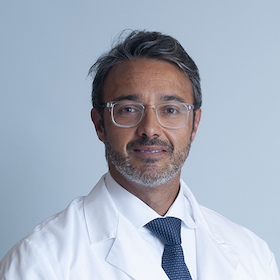
Leonardo Riella
Harvard Medical School (Boston, USA)
Edición 2022
Biography
Leonardo V. Riella, M.D. Ph.D. is the Harold and Ellen Danser Endowed Chair in Transplantation and Associate Professor of Medicine and Surgery at Massachusetts General Hospital, Harvard Medical School. Dr. Riella is the Director of Kidney Transplantation at MGH and a Senior Investigator at the Center for Transplantation Science. He has completed his Nephrology training at the combined BWH/MGH fellowship program and then completed his Transplant fellowship at the BWH. Subsequently, he started his laboratory at the BWH and later moved to MGH, under the Center of Transplantation Science.
Dr. Riella’s research is focused on understanding the mechanisms of immune regulation, investigating glomerular disease recurrence post-transplantation and on the development of novel therapies to promote immune tolerance. He has established a large biobank of human samples and has led the TANGO consortium, a multicenter consortium focused on investigating glomerular disease recurrence and biomarkers of rejection. His lab uses multiple animal models of auto-immune kidney disease and transplantation including kidney, heart, lung and skin murine transplants to better understand the immune response and investigate specific interventions to control the immune response and prolong transplant survival.
Dr. Riella has over 120 publications in major journals including New England Journal of Medicine, Circulation, Journal of Clinical Investigation, Journal of Immunology, Transplantation and American Transplant Journal. He is currently Section Editor of the American Journal of Transplantation. He has received multiple awards, including the Young Innovator Award of the American Society of Transplantation (AST), the 2016 Basic Science Career Development Award from the AST, and the 2020 Harvard Faculty Teaching Award. He is currently funded by the NIH, Department of Defense, Industry and Philanthropy. Find out more about at Dr Riella’s research here.
